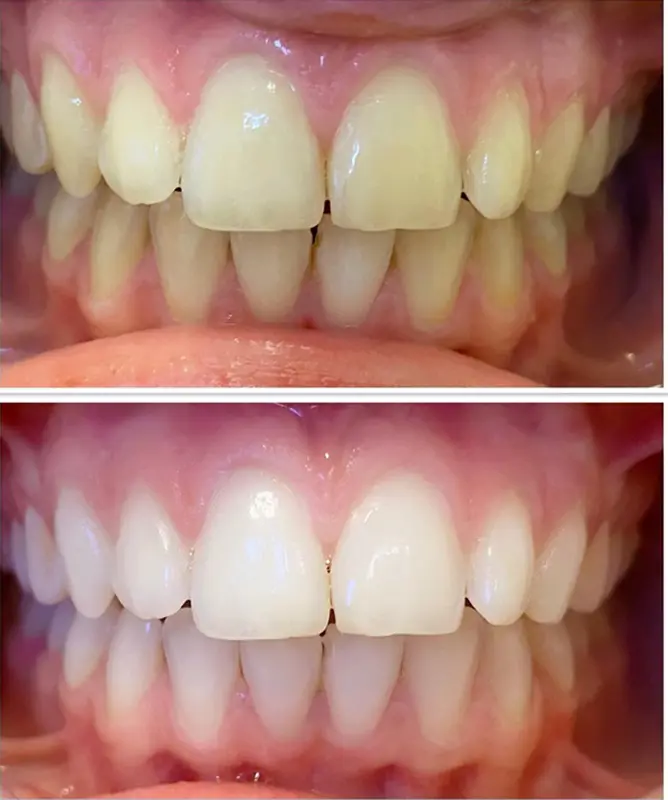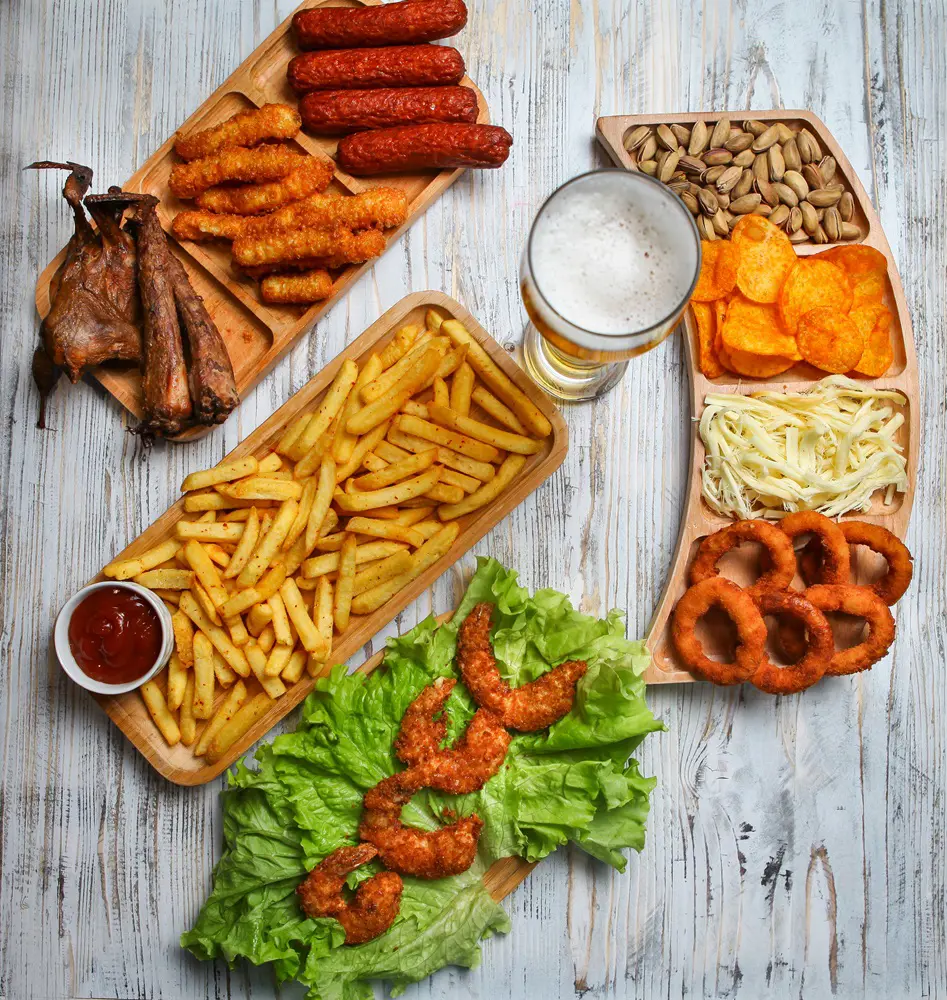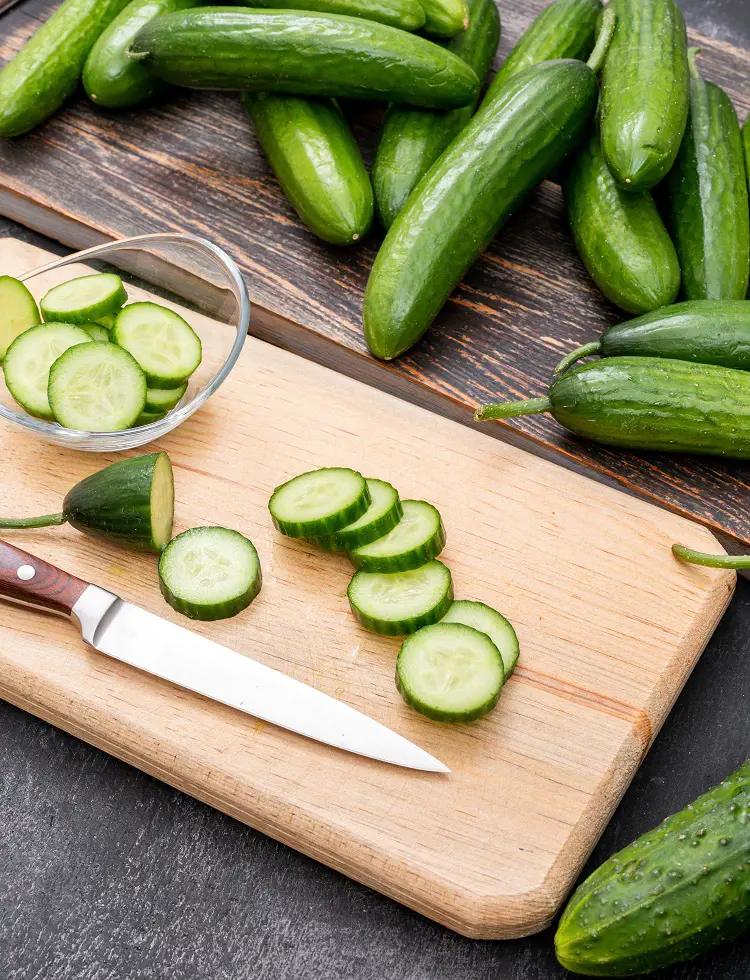How to Digest Food Faster? 11 Natural Ways To Improve

This post may contain affiliate links. If you make a purchase through links on our site, we may earn a commission.
As we have stepped into the world of a more sedentary lifestyle, all of us are more prone to physiological disorders. One of the consequences of not getting exposed to proper exercise is a delay in the digestion rate.
For people who are on desk jobs, extended screen time, and convenience-driven eating habits, there are many natural ways to improve your digestion. Here, we have brought 11 simple changes that can help attain efficient digestion. Just make sure you start early, and rest, the results will speak!
1. Start By Chewing Well

The smaller the food particles are, the more the surface area for digestive enzymes can act upon. This means there will be no halt in the processing of the foods. This is the exact reason why you should be chewing food properly.
Chewing is also known to increase the rate at which saliva is produced. Saliva has important enzymes that help the food particles to break. Moreover, saliva also enhances the passing of food into the alimentary canal. Overall, the more you chew foods, the more naturally the rate of digestion increases.
2. Increase Fiber

Studies have shown that fibers help in moving food through the intestinal tract. This maintained flow leads to reduced bowel transit time which is very important for bowel movements to run smoothly. Contrary to this, low fiber diet is known to increase the chances of constipation and lagged digestion.
While choosing, it's better to go for foods containing both soluble as well as insoluble fibers. Soluble fibers ease the overall process of digestion whereas insoluble fibers form a bulk on the intestine. Increased bulk means a high rate of passing of food, leaving no traces in the digestive tract over time.
3. Add Probiotics
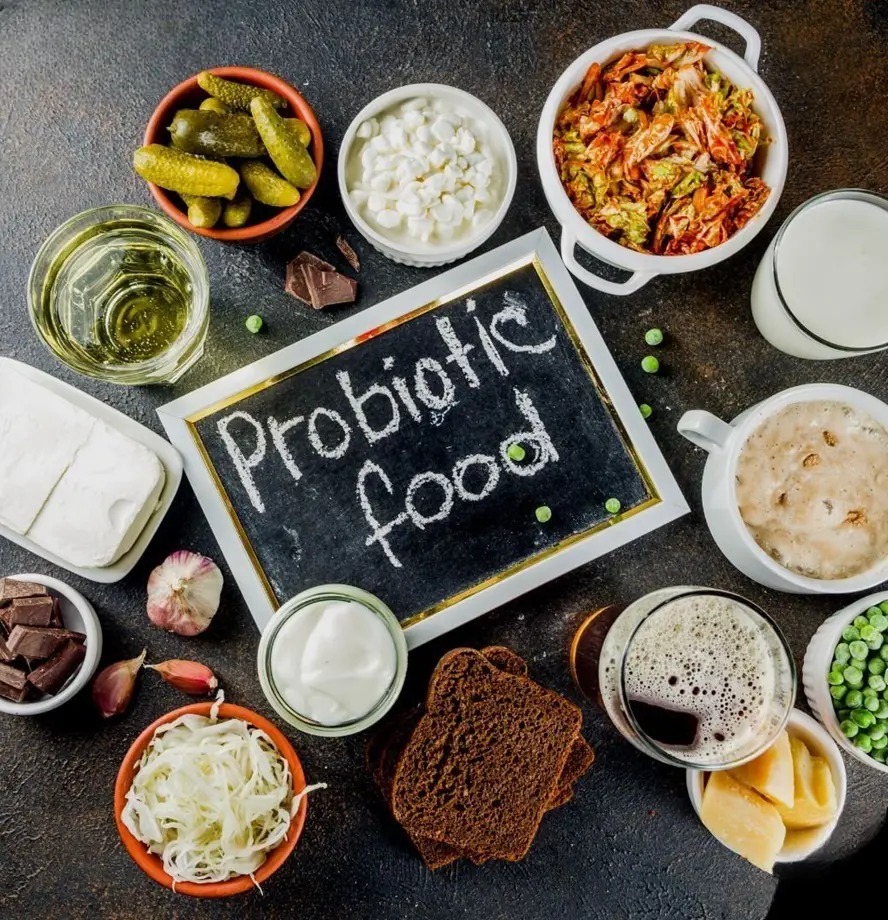
Fermented foods are excellent probiotics. Yogurt, kefir, sauerkraut, kimchi, miso, and kombucha are some such foods garnered for their ability to create a healthy gut environment. The main advantage of adding probiotics to our diet resides in the fact that they can add healthy bacteria to our gut. And the balance of the gut microbiome is a key to maintained digestion.
The other advantages of probiotics on digestion include improved nutrient absorption. With these foods, the vitamins and minerals are absorbed to the maximum. Also, these foods have an important role in supporting the health of gut lining cells alleviating issues like bloating, gas, and diarrhea.
4. Portion Control

Consuming large portions of meals is not considered appropriate as it can overwhelm one's digestive system. The more food is in the stomach, the more will be time required to empty it. So, looking after the portion size is an essential part of mindful eating.
Besides decreasing the bowel transit time, portion control allows you to enjoy every bite. This indirectly provides proper time for the brain to secrete essential digestive enzymes and hormones. There are also other benefits related to portion control including reduced risk of acid reflux, bloating and gas.
5. Stay Hydrated

Saliva is 99% water, so when the water amount is present in the body in the needed amount, it indirectly supports the production of saliva. As already mentioned earlier, saliva can be the best agent that helps in the improvement of digestion.
Another important role water plays in digestion is ensuring proper bowel movement. It prevents the lagging of the passing of ingested food particles through the intestine which also means the digestion rate is improved.
The majority of the digestive enzymes also function optimally in the presence of water. So, every effect of proper hydration guarantees that digestion runs smoothly. It is recommended that adults not miss 1.5 to 2 liters of water every day for proper body functioning.
6. Healthy Fats
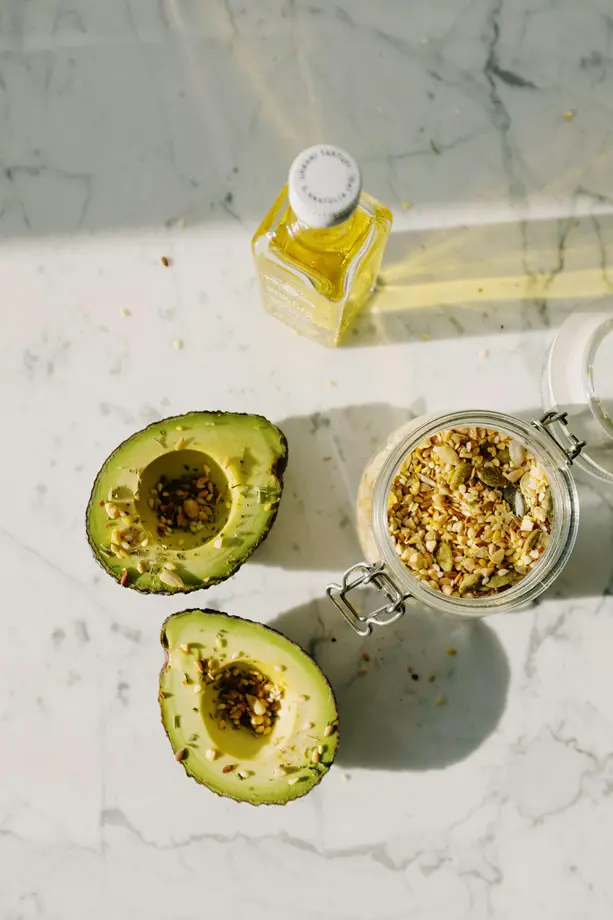
Whether you want to prevent overeating or want digestive enzyme production and functioning to run efficiently, healthy fats are the unwavering solution. Adding healthy fats to the diet present in food sources like avocados, nuts, seeds, and olive oil, promotes smooth digestion when compared to digestible carbs and proteins.
For instance, healthy fats take 3 to 6 hours for complete digestion whereas carbs take 30 minutes to 2 hours and protein takes 3 to 4 hours. The longer digestion time fats have means there is gradual energy release in the body which stops the sense of hunger for a longer time leading to less load of food in the intestine.
This concentrated source of energy also stimulates the production of enzymes and bile needed for digestion. The good aspects don't stop here! Certain healthy fats are also known to have a prebiotic effect, meaning they help regulate the population of gut flora. The maintained population of the flora is equally important for the functioning of the digestive system.
7. Exercise

The direct effect of exercise lies in the strengthening of muscles of the digestive tract. The healthier the muscles are, regular the bowel movements and the lesser the chances of constipation. Lack of physical activity such as seen in the sedentary lifestyle on the other hand is linked to a slower digestion rate and increased risk of digestive disorders.
Without exercise, there is very little chance for you to attain a healthy weight, which ultimately hinders efficient digestion. Moreover, sedentary lifestyles can also lead to higher stress which can further degrade the normal rate of digestion.
For a healthy digestion and healthy lifestyle, try to aim for 150 minutes of moderate exercise weekly or you can also go for 75 minutes of vigorous exercise. For individuals with a busy schedule, short bouts of activity like walking 10 to 15 minutes daily can help.
8. Stress Management

Stress does not only hamper your daily mood, but it can cause a botch of digestion. Stress has been shown to activate flight or fight response, causing issues like diarrhea when suddenly exposed to stress. In cases of prolonged exposure, the food in the stomach remains on hold for a longer period of time, and furthermore, stress enzymes like cortisol will add to the digestive havoc.
Cortisol brings issues like bloating and indigestion to the surface. Not only that, this enzyme and stress overall leads to dysbiosis, a condition in which the balance of gut flora is distorted. If you are someone facing stress on a regular basis then digestive issues may not be new to you!
For preventing and stopping stress to take charge of the digestive processes, the most important solution is to give time to maintain your mental happiness. For this, meditation, exercise, a healthy diet and keeping yourself organized throughout the day are some simple solutions.
9. Sleep Well

Proper sleep is an inseparable intervention for any health disorder. Sleep is the crucial time when the body can restore, repair and regenerate. In the case of digestion, quality sleep helps the body handle everything, from damaged cells to the production of hormones related to appetite and digestion.
Ghrelin and leptin, the two important hormones get time for establishment in the body during sleep which prevents overeating and digestive overload.
The important mechanism of our body that dictates various physiological processes, the circadian rhythm, is also maintained by quality sleep. The regulation of this internal clock during sleep helps in the release of melatonin which helps regulate digestive processes.
Circadian rhythms also influence when we eat; it makes sure we eat in alignment with these rhythms hence improving the gut motility.
10. Limit Fast Foods
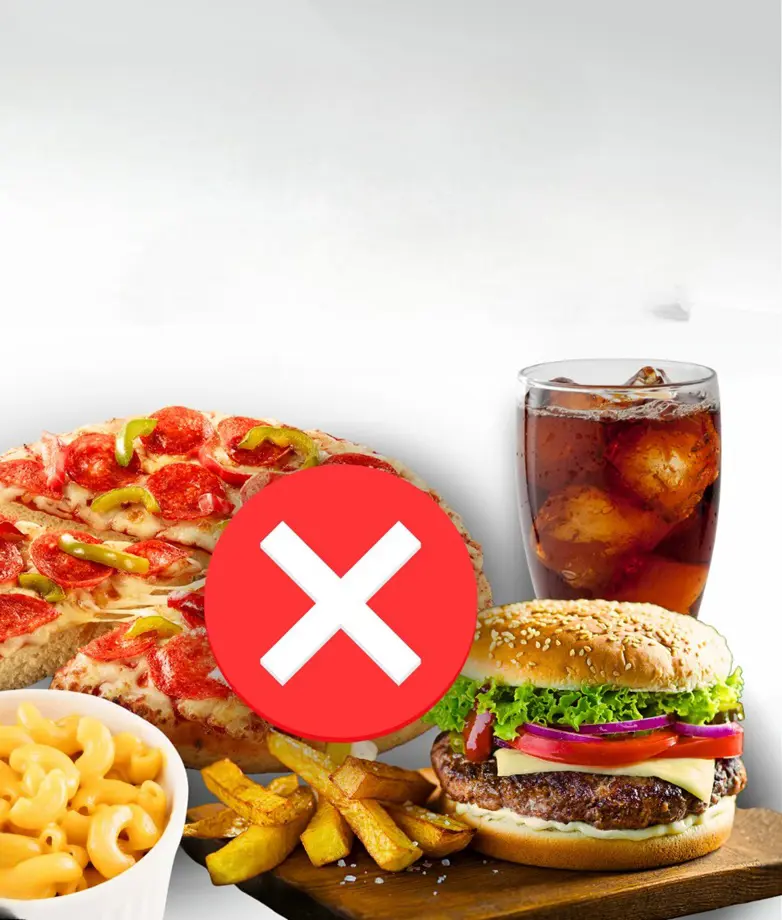
Fast foods possess very low nutrition. High in fat and sugar, low in fiber and loaded with additives, fast foods can slow down digestion, halt regular bowel movements and also tend to disrupt the microbial flora population in the gut.
Limiting the empty calories fast foods offer and focusing on nutrient-dense ones like fruits, vegetables and whole grains are important to secure digestive health. Also, fiber-rich foods can help regulate bowel movements by adding bulk to the food traversing through the intestine.
The fact that fast foods high in sodium can be dehydrating can not be overlooked as well. Overall, the consequences of consuming fast foods in excess for a long time include an increased risk of digestive disorders like irritable bowel syndrome (IBS), gastroesophageal reflux disease (GERD), and other gastrointestinal disorders.
11. Limit Foods With A Longer Digestion Time

If you have been facing delayed digestion continuously, it's better to stop intake of foods with longer digestion time temporarily. High-protein foods and high-fat foods have longer transit times in the gut, which can slow down the overall digestion rate.
Reducing foods higher in complex carbohydrates such as those higher in fibers is also important when your system is dealing with impaired digestion. Try to escape beans, certain vegetables and whole grains as much as possible.
By keeping an eye on foods that take longer to digest and replacing them with balanced meals, probably including ones that are easy on the digestive system, you can naturally increase the rate of digestion.
Bottom Line
Among all the above-mentioned ways, mindful eating is a guaranteed way to improve digestion. Make sure you don't eat haphazardly, avoid distractions like phones and TVs while eating and let all your senses delve into the food.
Eating slowly and mindfully is the beginning of letting digestion work fully. Enjoying your food also allows better nutrient absorption, meaning improvement in eating habits is the first step to help the digestive system function optimally.
Recent posts
Lifestyle
Lifestyle
Is It Safe To Eat Raw Eggs? Benefits, Nutrition And How To Eat?
Consuming raw eggs has remained a subject of discussion over the years concerning its safety as well as its nutritional benefits. Some argue that raw eggs contain benefits like rich protein and other vitamins while the other side is concerned with m...
Lifestyle
How to Get Rid of Yellow Teeth: 13 Home Remedies
Noticeable yellowish tint on teeth can be caused by several factors such as aging, diet and poor oral hygiene. The yellowing is related to the wearing down of the outer enamel layer of the teeth or the development of stains on the surface, resulting...
Lifestyle
20 List Of Processed Foods To Avoid
In today's world, processed foods are as important as ever due to the ease and accessibility they provide. These quick and tempting solutions for busy lifestyles however come with a hefty price tag, they have minimum nutritional value and in the long...
Lifestyle
How To Get Rid of Leg Cramps
Many people worldwide face sudden, involuntary contractions of leg muscles known as leg cramps. Though these cramps last only for a few seconds or minutes, they can be quite painful. Whether you have to bear this distressing condition once in a while...
Lifestyle
11 Home Remedies For Lice That Will Work
Head lice is a type of parasite commonly found in children. If not properly taken care of, they can rapidly divide and after some time the situation can go out of control. There are many over-the-counter treatments for lice, but natural remedi...
Lifestyle
18 Foods To Avoid During Pregnancy
What a pregnant woman eats directly shows up on the health of her baby. And some foods are not healthy for pregnancy at all. To protect the developing fetus, it is a must to watch out for foods high in mercury and viable microbes. These are just some...

